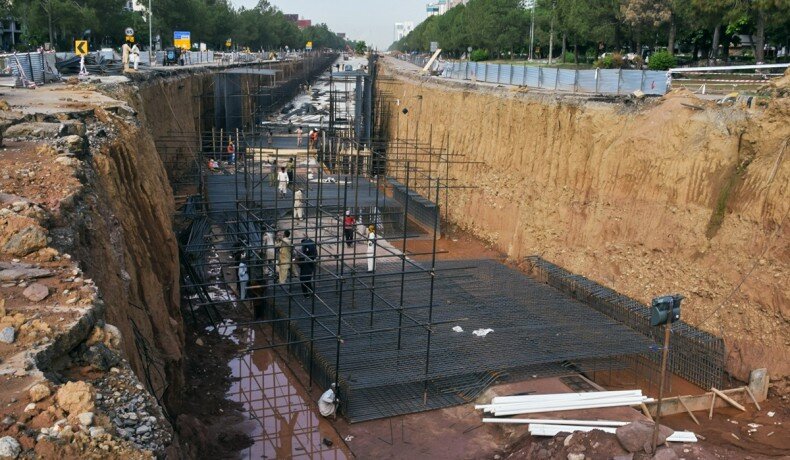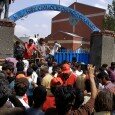By Yasir Habib Khan –
Metro Bus Swallows Funds of Other Public Welfare Projects
Lawful procedures, administrative regularities and financial transparency have taken a back seat in the execution of Punjab government’s well-trumpeted “Metro Bus Projects” whether in Lahore and Rawalpindi.
All credit goes Chief Minister Punjab Shahbaz Sharif who is known for his ultimate might powered by authoritative style of governance and opinionated attitude.
No doubt the Metro Bus Projects have their far-reaching benefits in term of mass mobility if done in accordance with standard operative procedures and in tune with preferential code of conduct.
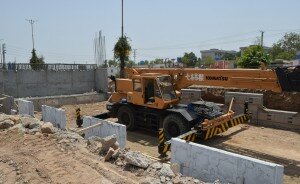 Neither future traffic plans nor road infrastructure management have been integrated with Metro Bus Projects marring commuting facilities on large scale and indeed they seem to be laid down to fulfill the wishes of one person.
Neither future traffic plans nor road infrastructure management have been integrated with Metro Bus Projects marring commuting facilities on large scale and indeed they seem to be laid down to fulfill the wishes of one person.
Big question marks popped up during the construction of 27 km long corridor of Lahore Metro Bus. It has two portions and astonishingly an eight km elevated part got completed without the due approval by Punjab Environment Department.
Punjab Environmental Tribunal constituted a local commission headed by member technical committee Dr. A Saleemi to detect environmental wrongdoings which later revealed in his inspection report that Lahore Metro Bus Project made blatant violations of National Environmental Quality Standards.
Environmentalist and Advocate Supreme Court Akhtar Awan says that Mass Rapid Transit System has trampled all sections of Punjab Environment Protection Act 2012.
“Project seemed to be kicked off in haste. EIA report is a mandatory requirement before the commencement of any mega development work but Lahore Metro Bus was started without such basic modus operandi,” a known environmentalist Rafay Alam holds the view.
Metro Bus Rawalpindi project has taken the lead in administrative blunders. Brushing aside various development works regarding health and education, excessive funds have been released for the project. Punjab government issued allocated amount before 40 percent completion of its work.
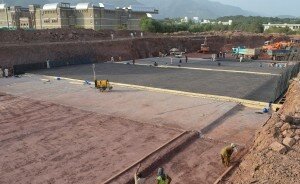 As per detail, around Rs. 525 billion were earmarked for public welfare projects. As per decided practice, government had to release Rs. 210 which constitutes 40 percent of total amount. But merely Rs. 146 billion were released which makes just 28 percent of development work. Contrary to the miserly action, it is enough to blow one’s mind that government have so far released Rs. 43 billion already out of total cost of Rawalpindi project, Rs. 45 billion.
As per detail, around Rs. 525 billion were earmarked for public welfare projects. As per decided practice, government had to release Rs. 210 which constitutes 40 percent of total amount. But merely Rs. 146 billion were released which makes just 28 percent of development work. Contrary to the miserly action, it is enough to blow one’s mind that government have so far released Rs. 43 billion already out of total cost of Rawalpindi project, Rs. 45 billion.
Recently, Transparency International Pakistan (TIP) has been poured in a complaint that the Punjab government has doled out National Engineering Services Pakistan (Nespak) an extravagant consultation fee for Rawalpindi Metro Bus project.
Exorbitant fee near about Rs1.2 billion, TIP claims, which is around 3 percent of the total cost of the project was given to Nespak over the project.
Punjab government official on condition of anonymity says that Nespak screwed up the feasibility report and its burnt has to be borne out in terms of increasing the cost of project. Islamabad-Rawalpindi Metro Bus Project was estimated Rs. 44.5 billion but cost swelled to Rs50 billion, he added.
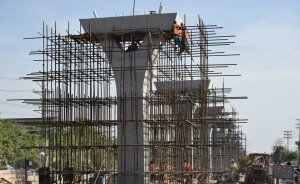 This is against the true spirit of Rule No 45(5) of Punjab Procurement Rules 2014. Metro Bus Project has also been lashed out by general public when residents of Rawalpindi grumbled on the delay in the completion of project. Various complaints were filed direct to Chief Minister and Chief Secretary Complaint Cell saying that road woes have worsened as Metro Bus Project has prolonged.
This is against the true spirit of Rule No 45(5) of Punjab Procurement Rules 2014. Metro Bus Project has also been lashed out by general public when residents of Rawalpindi grumbled on the delay in the completion of project. Various complaints were filed direct to Chief Minister and Chief Secretary Complaint Cell saying that road woes have worsened as Metro Bus Project has prolonged.
The Commissioner Office senior official spilled the beans that around 1,462 complaints said in one voice to fast-track the Metro Bus Project in Rawalpindi and Islamabad. The delay has inflicted massive damage to the routine life of the people who claim that if the situation continues, they would take to streets.
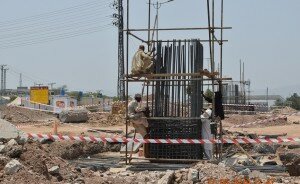 Instead the grievances were addressed, Commissioner Rawalpindi Division and Chairman Metro Bus Project opted not to announce final time frame of the completion of project, saying technical problem have thrown the spanner in the work
Instead the grievances were addressed, Commissioner Rawalpindi Division and Chairman Metro Bus Project opted not to announce final time frame of the completion of project, saying technical problem have thrown the spanner in the work
People, who are at the helm of affairs, ignoring public suffering, respond with cheers that the project would revolutionize mass transit commutation. Hence, some hassles have to be tolerated for sustainable rewards.
Both Metro bus projects carry visible flaws. They have been developed with no relation with road management system. Besides hushing up environmental feasibilities, the stretch of iron bars along the corridors appears truly odd impairing the city landscape.
It is high time to ponder the potential of the urban transit system to improve the traveling facilities. It is inexpensive mode of traveling that rationalizes space and geography but it needs to do through set pattern and prescribed terms and condition.





















































































